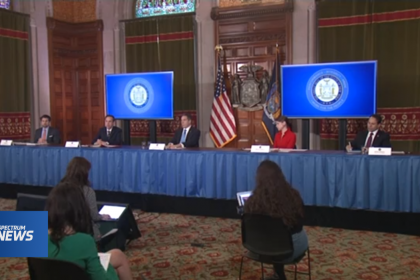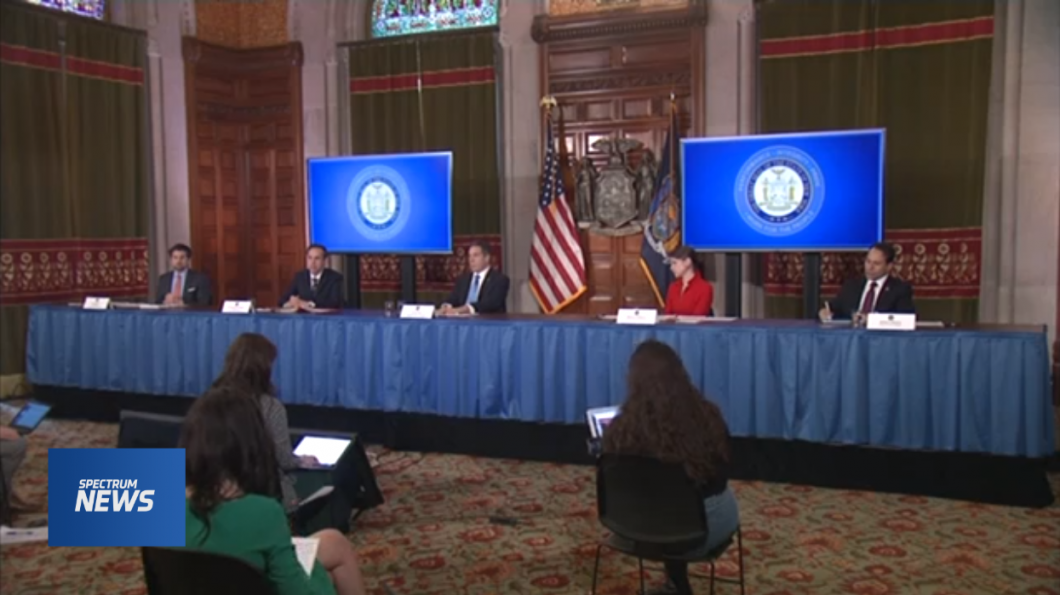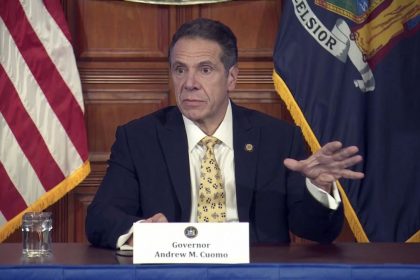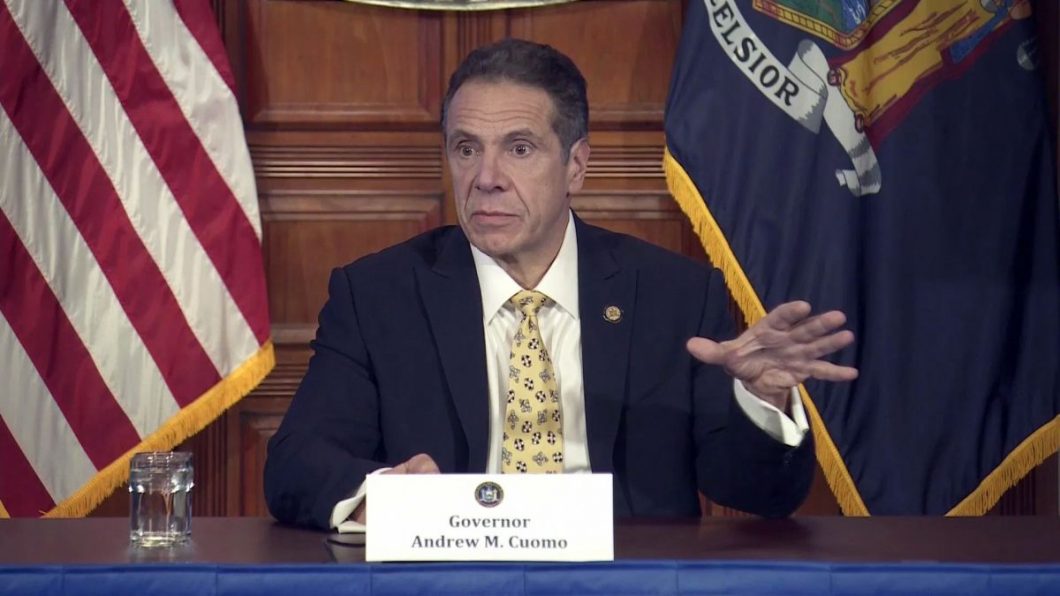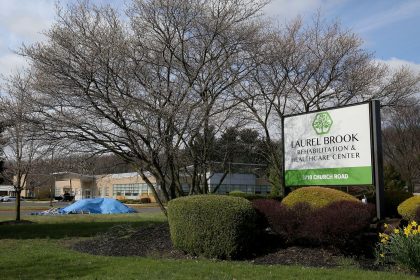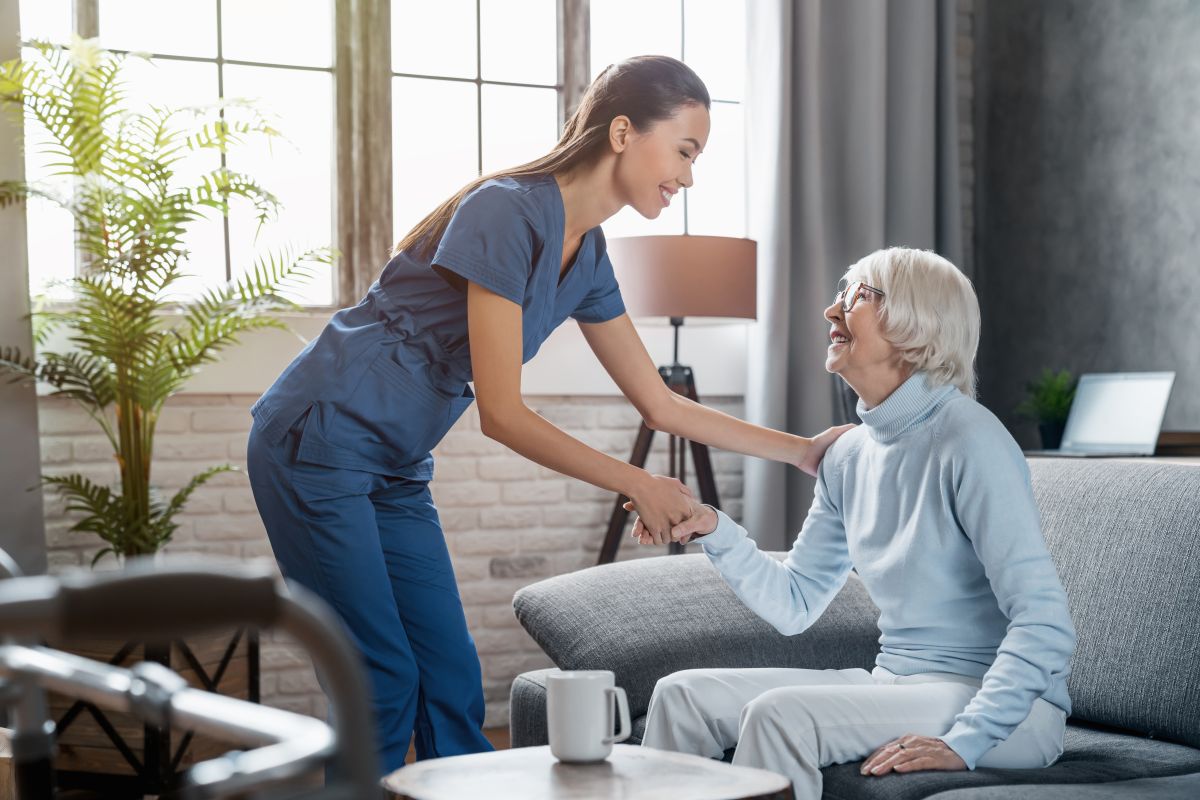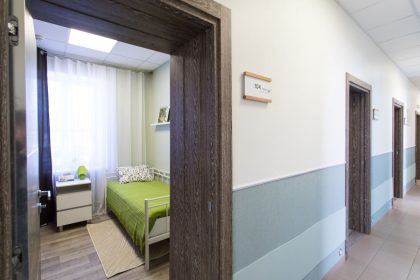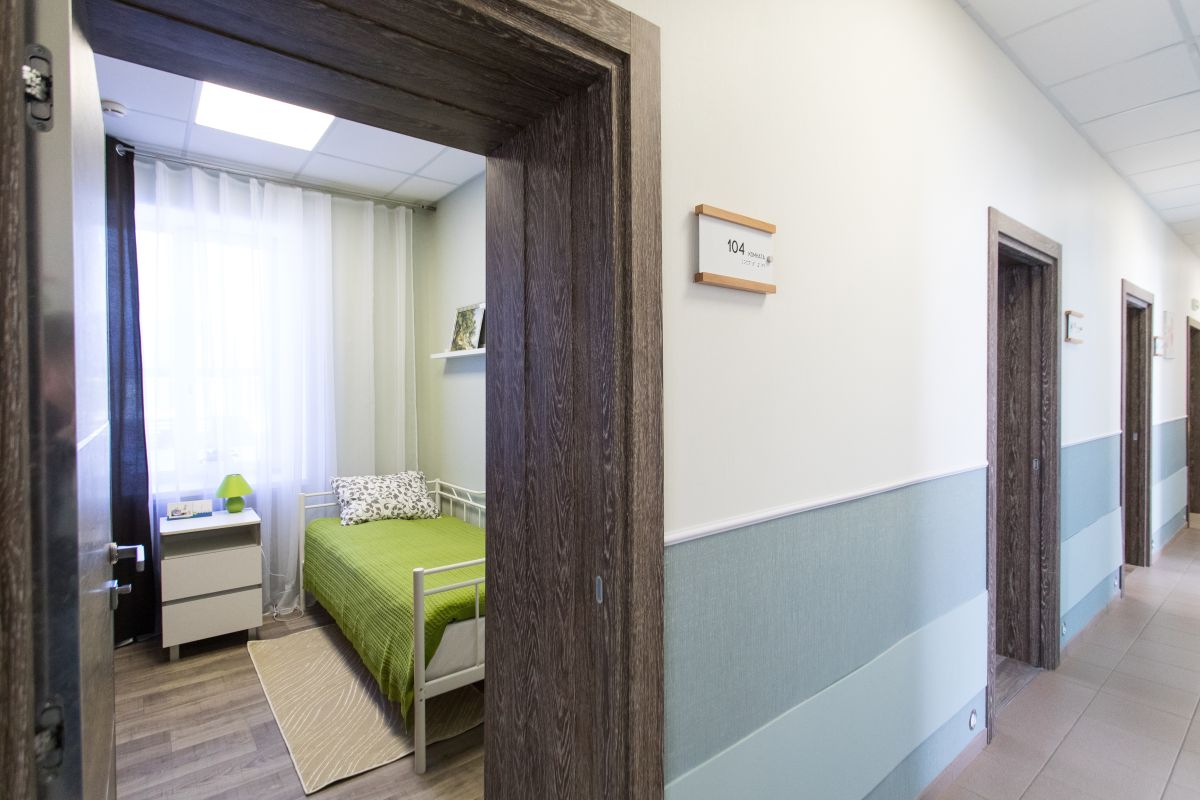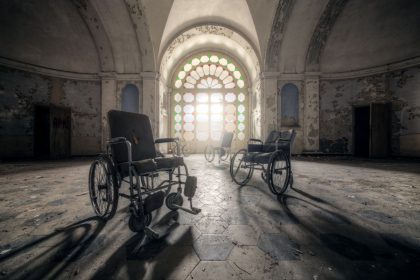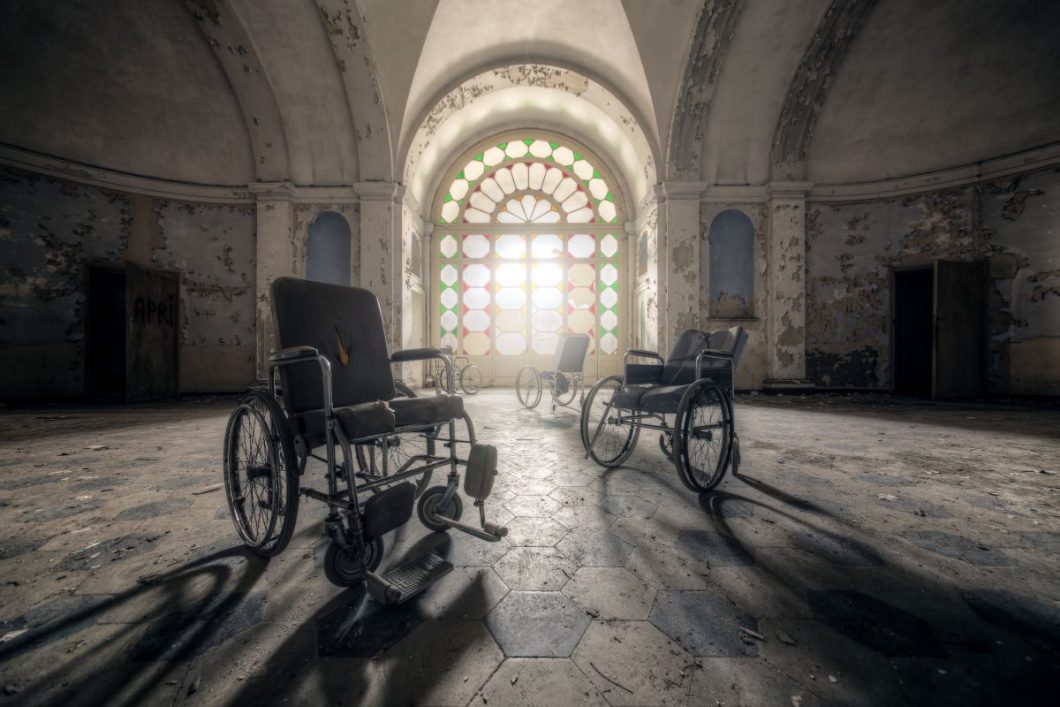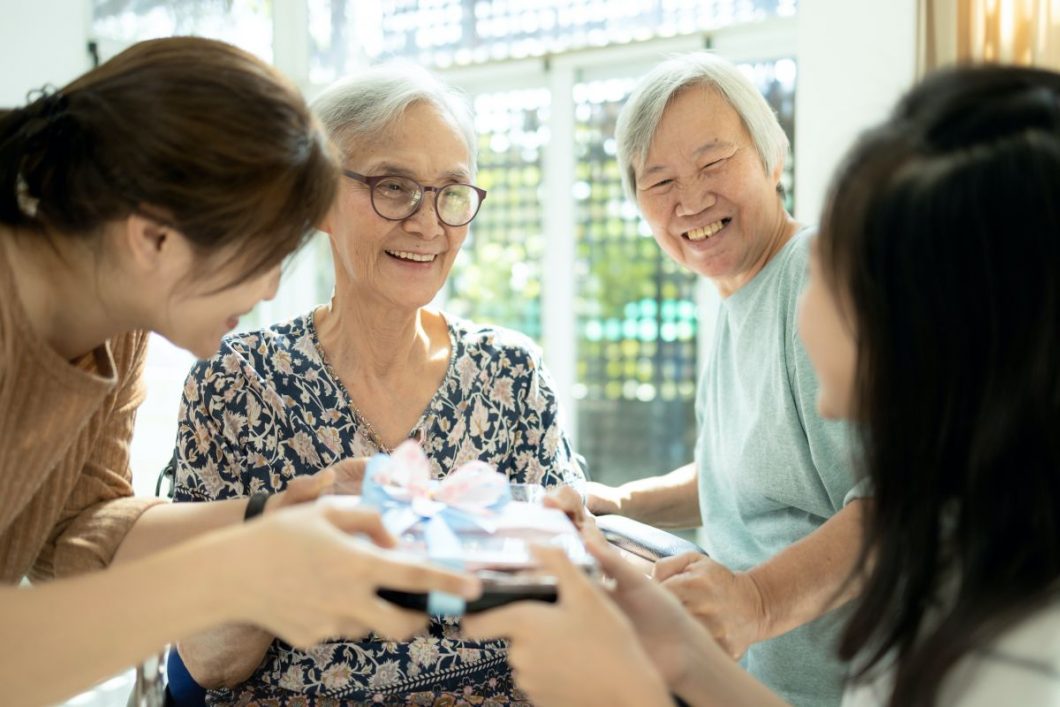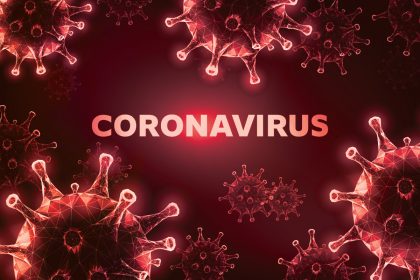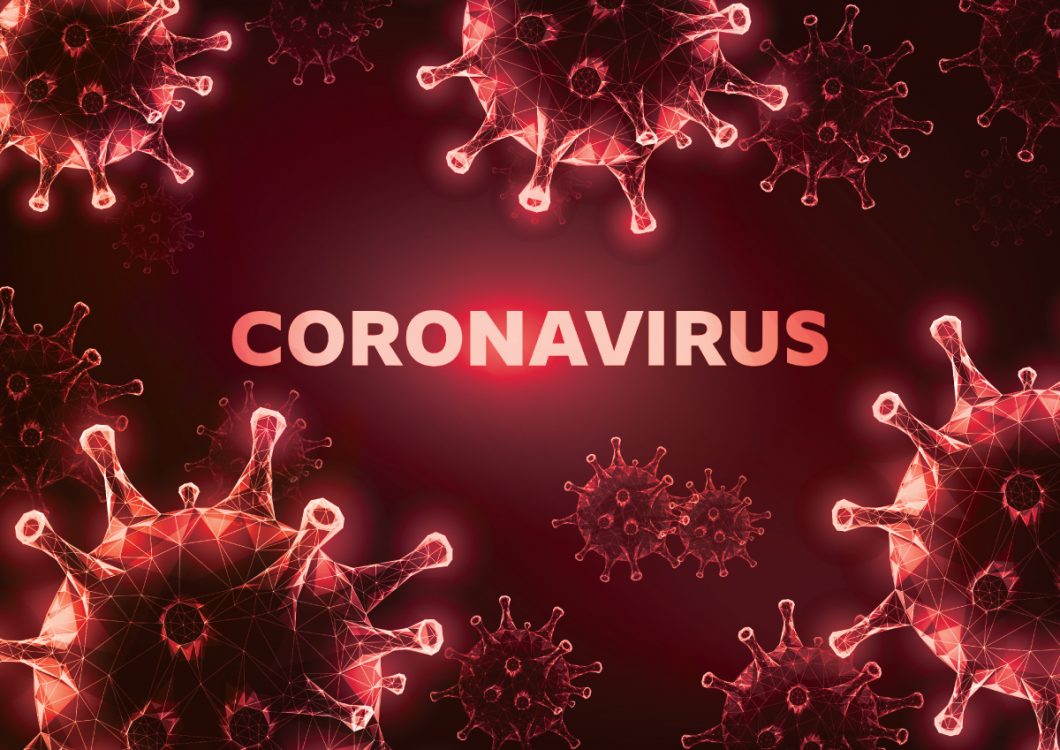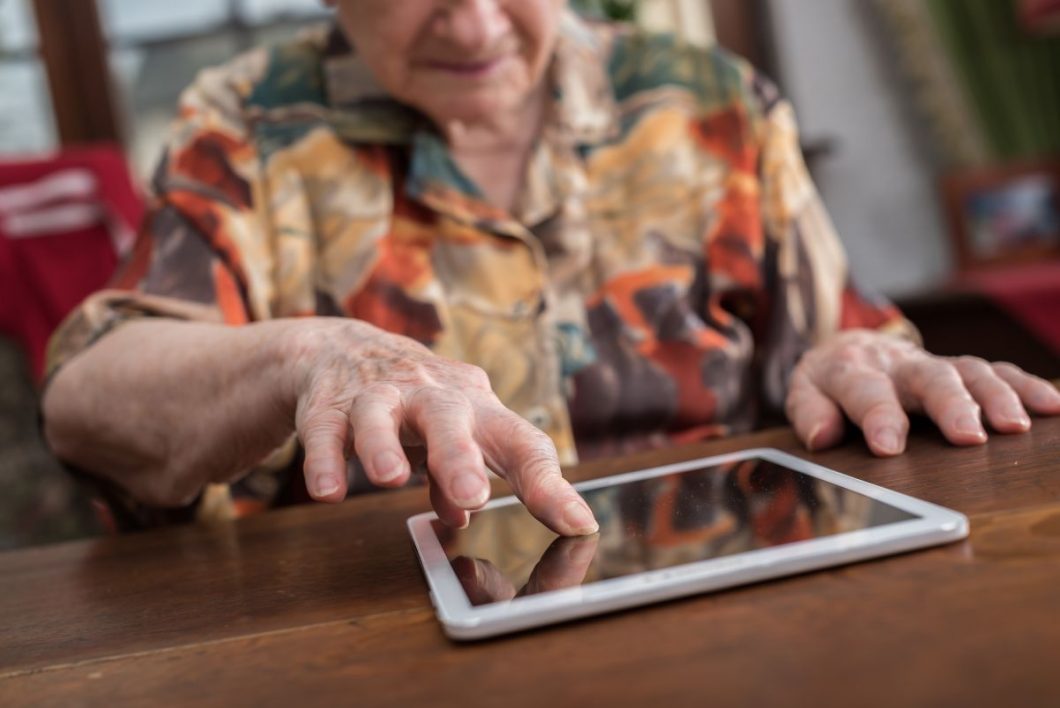 Social engagement for older Americans is essential for their physical and mental well-being. But the COVID-19 pandemic makes that a challenge, which becomes even harder if they reside in a nursing home, or skilled nursing facility.
Laurie Archibald-Pannone, a geriatrician at the University of Virginia offers tips for the elderly to stay connected in her article on The Conversation, re-published by PBS.
A great suggestion is learning new social technology such as Zoom, Facetime and Skype, all of which don’t require someone to be tech-savvy. Another tip is to try to remain a part of the community remotely.
“Many organizations – political parties, faith-based groups, nonprofits – rely on volunteers to make phone calls. You can do that community-based activity right at home,” says Archibald-Pannone.
John Dalli, a partner in the law firm Dalli & Marino LLP, says isolation among nursing homes residents is even more prevalent during this pandemic.
“Most nursing homes have banned visitors. If you have a parent or loved one in a skilled nursing facility, please share these tips to help them reduce their feelings of isolation. Also, encourage family and friends to check in more often to help residents feel more connected.”
Read the complete story by clicking on this link:
https://www.pbs.org/newshour/health/4-tips-for-seniors-to-stay-connected-during-coronavirus-outbreak
Copyright © 2020, PBS, and The Conversation, US Inc.
Social engagement for older Americans is essential for their physical and mental well-being. But the COVID-19 pandemic makes that a challenge, which becomes even harder if they reside in a nursing home, or skilled nursing facility.
Laurie Archibald-Pannone, a geriatrician at the University of Virginia offers tips for the elderly to stay connected in her article on The Conversation, re-published by PBS.
A great suggestion is learning new social technology such as Zoom, Facetime and Skype, all of which don’t require someone to be tech-savvy. Another tip is to try to remain a part of the community remotely.
“Many organizations – political parties, faith-based groups, nonprofits – rely on volunteers to make phone calls. You can do that community-based activity right at home,” says Archibald-Pannone.
John Dalli, a partner in the law firm Dalli & Marino LLP, says isolation among nursing homes residents is even more prevalent during this pandemic.
“Most nursing homes have banned visitors. If you have a parent or loved one in a skilled nursing facility, please share these tips to help them reduce their feelings of isolation. Also, encourage family and friends to check in more often to help residents feel more connected.”
Read the complete story by clicking on this link:
https://www.pbs.org/newshour/health/4-tips-for-seniors-to-stay-connected-during-coronavirus-outbreak
Copyright © 2020, PBS, and The Conversation, US Inc.
Contact Nursing Home Abuse Attorneys Dalli & Marino
 Since 1996, Dalli & Marino, LLP, has helped families recover millions of dollars in cases of neglect at nursing homes or other elder care facilities. Our team serves Suffolk and Nassau Counties (Long Island), Manhattan, Brooklyn, the Bronx, Queens, Staten Island and Westchester County.
Please call our office today if you have questions about a loved one in a nursing home that may have experienced one of these issues at 1-888-465-8790 [Toll-Free] or complete the CASE EVALUATION FORM on our Contact Page. Read More
Since 1996, Dalli & Marino, LLP, has helped families recover millions of dollars in cases of neglect at nursing homes or other elder care facilities. Our team serves Suffolk and Nassau Counties (Long Island), Manhattan, Brooklyn, the Bronx, Queens, Staten Island and Westchester County.
Please call our office today if you have questions about a loved one in a nursing home that may have experienced one of these issues at 1-888-465-8790 [Toll-Free] or complete the CASE EVALUATION FORM on our Contact Page. Read More
The New York State Health Department will not release information about the number of positive COVID-19 cases in nursing homes and related deaths in specific facilities across the state because of privacy issues, according to Spectrum Local News.
“The nursing home is in many ways where they live,” said Health Commissioner Dr. Howard Zucker. “It’s not like when you go into a hospital and then you can leave the hospital, so we try to protect their privacy a little bit more but we do track and if there’s a case there or a concern there, we go in and investigate it immediately.”
Although nearly 2,000 nursing home residents in the state of New York have died from the coronavirus, the New York State Department of Health won’t state specifically where the cases are. Further, it is uncertain whether the cases are being tracked to further limit exposures. It is also unclear if nursing homes are taking the proper precautionary measures to limit injury and illness to their residents.
John Dalli, a partner in the law firm Dalli & Marino, LLP, says that may violate the New York State Public Health Law.
“If someone has a healthcare proxy or is next-of-kin, they are entitled to information about their loved one including whether that person has contracted COVID-19,” says Dalli.
He adds, “Most of these facilities were not set up with adequate staffing before the crisis, so there are a lot of people who are being put in harm’s way.”
If you have a parent or loved one in a skilled nursing facility, Dalli advises establishing a daily connection with someone inside the home, be it a doctor, a nurse, or an administrator, who can share what’s going on inside with your loved one.
“We are all under stress, the residents, the caregivers and the families. But it’s no excuse to not give families the information they are entitled to have about the resident.”
Read The Complete Story By Clicking On This Link:
https://spectrumlocalnews.com/nys/central-ny/politics/2020/04/08/doh-not-disclosing-which-nursing-homes-have-coronavirus-cases
Copyright © 1998-2020 Charter Communications. All rights reserved.
Contact Dalli & Marino LLP
Dalli & Marino, LLP has been providing top-tier representation, and we have recovered millions of dollars, for families in cases of nursing home and other skilled care/elder care facility neglect and results of understaffing, in Suffolk and Nassau Counties (Long Island), Manhattan, Brooklyn, the Bronx, Queens, Staten Island, and Westchester County, since 1995.
Please contact our team to discuss your case, or with any questions, at 1-888-465-8790 [Toll-Free], or by completing the CASE EVALUATION Form on our Contact Page.
Read More

On February 18, 2020, Seema Verma, the Administrator of the Centers for Medicare & Medicaid Services (CMS) published a blog post on CMS’s five part strategy to improve nursing home quality and safety. The focus of this post was on the second pillar of the initiative: enhancing enforcement. As Administrator Verma correctly states, “CMS bears the responsibility to develop and enforce quality and safety standards across the nation’s healthcare system . . . [e]very nursing home resident deserves to be treated with dignity and respect.”
To meet these duties, CMS has conducted a comprehensive review of the nursing home enforcement mechanism and has or is undertaking several changes to improve nursing homes nationwide. For instance, CMS has implemented additional enforcement remedies against so-called “late adopters” (nursing homes with high rates of inappropriate antipsychotic drug use) and is requiring state survey agencies to conduct at least 5 percent of their “off-hour” surveys (i.e., weekends) at facilities with extremely low registered nurse staffing based on payroll based journal (PBJ) data.
Unfortunately, Administrator Verma’s blog post also notes that CMS is taking a “hard look” at fines for noncompliance. According to the Administrator, there is a high level of variation and inconsistencies among states regarding the use of civil money penalties (CMPs). Administrator Verma indicates that CMS will be issuing new policies to reduce regional variation. LTCCC is concerned by this announcement due, in part, on previous changes to the CMP Analytic Tool which weakened enforcement of the nursing home standards of care by making per instance CMPs (a one-time fine) the default CMP instead of per-day CMPs (a fine for every day of noncompliance), as requested by the nursing home industry. Writing about this change, The New York Times stated that “the change means that some nursing homes could be sheltered from fines above the maximum per-instance fine of $20,965 even for egregious mistakes.”
While there may be regional differences in the use of financial penalties, LTCCC respectfully urges CMS not to remedy this variation by weakening enforcement penalties as was previously done by changing the CMP Analytic Tool. Facilities that voluntarily participate in the Medicare and/or Medicaid programs receive public funds for every day of a resident’s stay in exchange for providing care that meets or exceeds the federals standards. Thus, facilities must be held accountable to the public for every day of noncompliance. Only per day CMPs hold nursing homes accountable for each day that they fail to provide adequate care while receiving taxpayer dollars from the Medicare and Medicaid programs.
Lastly, Administrator Verma’s blog post notes that CMS has asked Congress for the authority to adjust the frequency of nursing home health inspections. LTCCC strongly encourages Congress not to grant CMS the authority to roll back annual nursing home inspections. CMS has previously indicated that, in order to focus on poorly performing nursing home, it would like to inspect so-called “top performing” facilities every 30 to 36 months (instead of annually as is currently required). However, numerous studies and reports indicate that residents at “top performing” facilities are not immune from experiencing abuse, neglect, and other forms of harm. According to a 2019 Government Accountability Office (GAO) report, more than 1 in 5 nursing homes considered “above average” and “much above average” by CMS have been cited for abuse in a single year.
Decreasing nursing home survey frequency is dangerous and creates more burdens for residents and families. LTCCC asks that CMS use the authority already granted under the federal Nursing Home Reform Law to properly adjust the frequency of health inspections. The Reform Law provides for a more flexible survey process by allowing state survey agencies to adjust the timeframe of nursing home inspections by six months as long as the statewide average is 12 months. If a nursing home has a poor record of care, surveyors can inspect that facility annually on a nine-month cycle. Likewise, if a nursing home has a strong record of care, then surveyors can inspect that facility annually on a 15-month cycle.
The initiatives identified in the CMS Administrator’s blog post are concerning. While CMS has implemented a few promising changes, our organization urges CMS to cease efforts that weaken or undermine the rights and protections of nursing home residents.
For more information about CMS’s proposal to reduce the frequency of nursing home inspections, please read out issue alert, Nursing Home Residents at Risk: Proposals to Reduce Survey Frequency for “Top-Performing” Nursing Homes are Dangerous.
Contact Dalli & Marino LLP
Dalli & Marino, LLP has been providing top-tier representation, and we have recovered millions of dollars, for families in cases of nursing home and other skilled care/elder care facility neglect and results of understaffing, in Suffolk and Nassau Counties (Long Island), Manhattan, Brooklyn, the Bronx, Queens, Staten Island, and Westchester County, since 1995.
Please contact our team to discuss your case, or with any questions, at 1-888-465-8790 [Toll-Free], or by completing the CASE EVALUATION Form on our Contact Page.
Read More
A petition on Change.org is asking New York Governor Cuomo to reconsider his March 26th mandate requiring nursing homes to accept patients infected with COVID-19:
“Keeping the elderly safe from COVID-19 should be America’s number one priority…Not only are they the most vulnerable in contracting the virus, but they are at the highest risk of dying once infected.
“Not only are positive COVID-19 patients going to infiltrate our weak and vulnerable population, but nursing homes are prohibited from requiring a hospitalized resident to be tested prior to admission or readmission back into the nursing home. By not allowing testing, there is no way to know who is possibly infected.”
The petition suggests using government buildings that are now empty because of social distancing and further explains:
“We understand the need for alleviating hospital overcrowding during this crisis, but there are plenty of chronically ill, non-contagious patients that nursing facilities could and would welcome.”
John Dalli, a partner in the law firm Dalli & Marino LLP dedicated to protecting the rights of the elderly, understands the intent behind the petition.
“The governor’s new mandate is an issue everyone needs to follow as circumstances around the coronavirus shift by the hour,” says Dalli. “It’s an emotional issue. If you have a parent in a nursing home now, you’re upset. On the other hand, if your loved one needs to be moved to such a facility, you don’t want them to be denied. You’re welcome to call us anytime to ask questions or just talk through your concerns.”
Please click on this link to read the petition on Change.org
Contact Nursing Home Abuse Attorneys Dalli & Marino
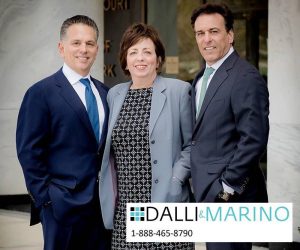 Since 1996, Dalli & Marino has helped families recover millions of dollars in cases of neglect at nursing homes or other elder care facilities. Our team serves Suffolk and Nassau Counties (Long Island), Manhattan, Brooklyn, the Bronx, Queens, Staten Island and Westchester County. You can call our office today at 1-888-465-8790 [Toll-Free] or complete the CASE EVALUATION FORM on our Contact Page.
Since 1996, Dalli & Marino has helped families recover millions of dollars in cases of neglect at nursing homes or other elder care facilities. Our team serves Suffolk and Nassau Counties (Long Island), Manhattan, Brooklyn, the Bronx, Queens, Staten Island and Westchester County. You can call our office today at 1-888-465-8790 [Toll-Free] or complete the CASE EVALUATION FORM on our Contact Page.
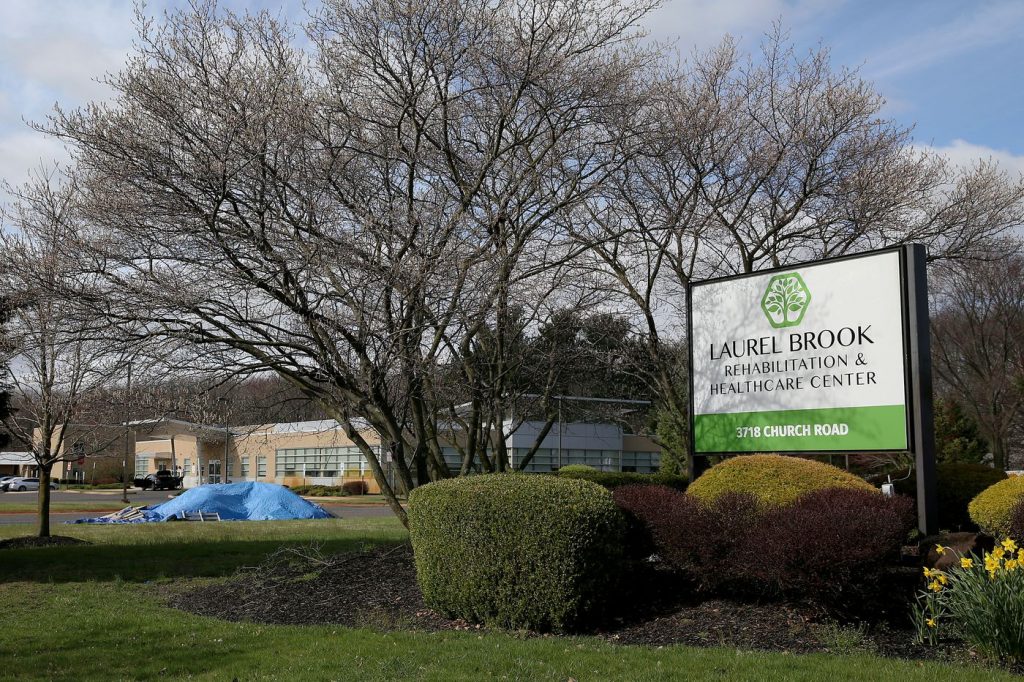 TIM TAI / PHILADELPHIA INQUIRER STAFF PHOTOGRAPHER
TIM TAI / PHILADELPHIA INQUIRER STAFF PHOTOGRAPHER
Three residents and two employees at a New Jersey nursing home tested positive for the coronavirus last week even though the facility had already suspended visitation for residents, according to the Philadelphia Inquirer’s Stacey Burling and Pranshu Verma.
The Laurel Brook Rehabilitation and Healthcare Center in Mount Laurel, NJ is continuing to ask family members to connect with their loved ones instead through telephone and video calls, email, and texting.
David A. Nace, a University of Pittsburgh physician, said these skilled nursing facilities are doing their best to keep out the virus, but that it is inevitable that COVID-19 will get into more facilities.
“It’s unfortunate that, once it comes in, it will spread,” said Nace who adds that even well-run nursing homes are at risk for significant outbreaks because “you have a very vulnerable population in close contact.”
John Dalli, a partner at the law firm Dalli & Marino, LLP says it’s only natural to want to visit your loved ones in nursing homes during these times of extreme disruption and stress.
“But you want to practice social distancing to the extreme here because you could unknowingly bring in COVID-19 as well as viruses like the flu which continue to impact people too. Be sure to follow the CDC for the latest guidelines on managing the coronavirus.”
Read the Complete Story By Clicking On This Link
Copyright © 2020 The Philadelphia Inquirer, LLC.
Contact Nursing Home Abuse Attorneys Dalli & Marino
 Since 1996, Dalli & Marino has helped families recover millions of dollars in cases of neglect at nursing homes or other elder care facilities. Our team serves Suffolk and Nassau Counties (Long Island), Manhattan, Brooklyn, the Bronx, Queens, Staten Island and Westchester County. You can call our office today at 1-888-465-8790 [Toll-Free] or complete the CASE EVALUATION FORM on our Contact Page.
Since 1996, Dalli & Marino has helped families recover millions of dollars in cases of neglect at nursing homes or other elder care facilities. Our team serves Suffolk and Nassau Counties (Long Island), Manhattan, Brooklyn, the Bronx, Queens, Staten Island and Westchester County. You can call our office today at 1-888-465-8790 [Toll-Free] or complete the CASE EVALUATION FORM on our Contact Page.
Nearly 70% of U.S. nursing homes are operated by for-profit owners according to the CDC. It’s important to remember this statistic as you select a skilled nursing facility for a parent or loved one.
“Not all for-profit nursing homes are bad, but you need to ask a lot of questions when exploring the many options out there,” said John Dalli, a partner in the law firm Dalli & Marino, LLP. “The chances for neglect and abuse in nursing homes are greater in facilities that choose profits over people.”
The United States Centers for Medicare and Medicaid Services offers an extensive, helpful checklist on questions to ask when you’re searching for a nursing home for a parent. In this fourth article, we will cover what you should look for in a skilled nursing facility’s food menus and recreational programs.
Good Menus Promote Health Among Nursing Home Residents
“Diets with proper levels of protein and nutrition help keep residents healthy and more active. On the other hand, malnutrition and dehydration can lead to weight loss and complicate medical situations such as bedsores,” says Dalli.
Do residents have a choice of food items at each meal?
Do they serve foods you like?
Can the nursing home provide for special dietary needs (like low-salt or no-sugar-added diets)?
Are nutritious snacks available?
Does staff help residents eat and drink at mealtimes, if needed?
Nursing Home Activities Help Keep Residents’ Bodies and Minds Healthy
“Active lives are healthy lives which becomes even more important for the elderly,” said Dalli. “Skilled nursing facilities should offer programs that keep their residents moving and engaged.”
Can residents, including those unable to leave their rooms, choose to take part in a variety of activities?
Do residents help plan or choose the activities that are available?
Does the nursing home have outdoor areas for resident use?
Is staff available to help residents go outside?
Does the nursing home have an active volunteer program?
Do I get to choose what time to get up, go to sleep, or bathe?
Can I have visitors at any time – even early or late hours?
Would I be able to leave the facility for a few hours or days if I choose to do so?
Are there procedures for leaving?
Does the nursing home offer the religious or cultural support I need?
Our next article in this series will reflect on signs of abuse and neglect in nursing homes and how to prevent it.
Contact Nursing Home Abuse Attorneys Dalli & Marino
 Since 1996, Dalli & Marino, LLP, has helped families recover millions of dollars in cases of neglect at nursing homes or other elder care facilities. Our team serves Suffolk and Nassau Counties (Long Island), Manhattan, Brooklyn, the Bronx, Queens, Staten Island and Westchester County.
Since 1996, Dalli & Marino, LLP, has helped families recover millions of dollars in cases of neglect at nursing homes or other elder care facilities. Our team serves Suffolk and Nassau Counties (Long Island), Manhattan, Brooklyn, the Bronx, Queens, Staten Island and Westchester County.
Please call our office today if you have questions about a loved one in a nursing home that may have experienced one of these issues at 1-888-465-8790 [Toll-Free] or complete the CASE EVALUATION FORM on our Contact Page.
Read MoreChoosing a nursing home for a parent or loved one is stressful and often overwhelming. With
over 15,600 facilities across the country according to the CDC, how do you choose the right one?
Experts say one of the easiest yet most important ways is to just use your eyes and ears.
“It’s essential to tour several facilities when you’re searching for the right nursing home for your
loved one,” says John Dalli, a partner in the law firm Dalli & Marino. “By looking out for key
elements, you’ll know right away if a facility is dedicated to its residents or if they’re choosing
profits over people — making them susceptible to neglect and abuse.”
The United States Centers for Medicare and Medicaid Services offers an extensive, helpful
checklist on questions to ask when you’re searching for a nursing home for a parent. In this
third article, we will cover what you should look for in a skilled nursing facility’s appearance and
spaces.
Nursing Home Appearances
- Are residents clean, well groomed, and appropriately dressed for the season or time of day?
- Is the nursing home free from overwhelming unpleasant odors?
- Does the nursing home appear clean and well kept?
- Is the temperature in the facility comfortable for residents?
- Does the nursing home have good lighting?
- How are noise levels in the dining room and other common areas?
Nursing Home Living Spaces Should Promote Resident Safety
“Falls are the leading cause of injury and death for the elderly,” says Dalli. “Get a good look at all
of the living spaces at a nursing home to ensure they are well structured and safely maintained.”
- Is the furniture sturdy, yet comfortable and attractive?
- Are exits clearly marked?
- Are there quiet areas where residents can visit with friends and family?
- Does the nursing home have smoke detectors and sprinklers?
- Are all common areas, resident rooms, and doorways designed for wheelchairs?
- Are handrails and grab bars appropriately placed in the hallways and bathrooms?
Residents’ rooms
- Can residents have personal belongings and furniture in their rooms?
- Does each resident have storage space (closet and drawers) in his or her room?
- Do residents have windows in their bedrooms?
- Do residents have access to internet, a computer, a personal phone, and television?
- Can residents choose their roommates?
- Are there policies and procedures to protect residents’ possessions, including lockable cabinets and closets?
Our next article in this series will reflect on the importance of resident food menus and
recreational activities.
Contact Nursing Home Abuse Attorneys Dalli & Marino
 Since 1996, Dalli & Marino, LLP, has helped families recover millions of dollars in cases of neglect at nursing homes or other elder care facilities. Our team serves Suffolk and Nassau Counties (Long Island), Manhattan, Brooklyn, the Bronx, Queens, Staten Island and Westchester County.
Since 1996, Dalli & Marino, LLP, has helped families recover millions of dollars in cases of neglect at nursing homes or other elder care facilities. Our team serves Suffolk and Nassau Counties (Long Island), Manhattan, Brooklyn, the Bronx, Queens, Staten Island and Westchester County.
Please call our office today if you have questions about a loved one in a nursing home that may have experienced one of these issues at 1-888-465-8790 [Toll-Free] or complete the CASE EVALUATION FORM on our Contact Page.
Read MoreMarch 9, 2020 – Over the last several years, it has become increasingly evident that too many nursing home residents are at risk of experiencing poor care because of fundamental problems with a facility’s ownership, management, and finances. This trend is supported most recently by the dramatic collapse of Skyline Healthcare and the shocking bankruptcy of HCR ManorCare. Such high-profile cases of nursing home chain closures and bankruptcies raise serious questions about the standards by which federal and state governments evaluate potential and existing nursing home owners.
Today, the Long Term Care Community Coalition (LTCCC) is publishing a report on nursing home ownership. The report, entitled Meaningful Safeguards: Promising Practices & Recommendations for Evaluating Nursing Home Owners, identifies promising practices among states for evaluating nursing home owners for state licensure and provides essential principles for improving accountability and integrity in the licensure process. Our organization encourages federal and state policymakers to use this report as a guideline for developing meaningful legislation and regulations. Consumers can speak out in support of these measures by writing to their representatives via our Action Center.
The report is divided into four sections:
- A brief background on federal certification requirements;
- An overview of promising state practices for evaluating a nursing home owner’s application for licensure;
- A summary of the promising practices; and
- LTCCC’s essential principles for improving government licensing requirements.
The report offers essential principles for issues involving ownership disclosure, financial capacity, leases or subleases, character and fitness, management, change of ownership, and criminal liability.
Following is an example of an essential principle from the report:
Applicants must publish notice of their intent to acquire a nursing home 90 days before the effective date of the change of ownership. The notice must include the names and address of any individual or entity with a prospective ownership interest in the facility. The notice must describe any planned changes to the facility’s operations. The notice must indicate that any individual may request a public hearing or submit comments to the Department on the change of ownership within 21 calendar days of the licensee’s notification.
Long Term Care Community Coalition
www.nursinghome411.org
One Penn Plaza, Suite 6252
New York, NY 10119
United States
As the elder population rises, so does the demand for workers who care for the elderly each day in residences and facilities such as nursing homes.
From 2018 to 2028, these “direct care” workers are projected to add more than 1.3 million new jobs, according to PHI, the nation’s leading authority on the direct care workforce, based in Bronx, New York. That number is on top of the 6.9 million direct care jobs that will need to be filled in those years as existing workers leave the field or labor force.
John Dalli, a partner in the law firm Dalli & Marino LLP, says finding adequately staffed nursing homes are already hard to find.
“This growing staffing shortage is why it’s so important to research nursing homes. Many facilities skimp on staff, choosing profits over patients,” said Dalli. “Sadly, neglect or abuse of nursing home residents almost always stems from inadequate staffing, both in quality and quantity.”
The United States Centers for Medicare and Medicaid Services offers an extensive, helpful checklist on questions to ask when you’re searching for a nursing home for a parent. In this second article, we will cover what you should ask about a skilled nursing facility’s staffing.
Nursing Home Staffing Questions
- Do staff knock on the door before entering a resident’s room?
- Do staff members refer to residents by name?
- Does the nursing home offer a training and continuing education program for all staff?
- Is there licensed nursing staff 24 hours a day, including a Registered Nurse (RN) present at least 8 hours per day, 7 days a week?
- Do Certified Nurse Aides (CNAs) help plan the care of residents?
- How many nurses, including CNAs, will be available to help me during the day, at night, and on weekends? (Note: The nursing home is required to post this information.)
- Is there a person on staff assigned to meet my social service needs, and can I meet with him or her?
- Will staff call my doctor for me if I have a medical need?
- Has there been a turnover in administrative staff, like the administrator or director of nursing, in the past year?
- Does the staff speak my primary language? If not, is an interpreter available or another system in place to help me communicate my needs?
Our next article in this series will look at comparing the appearance and physical quality of facilities and residents’ rooms.
Contact Nursing Home Abuse Attorneys Dalli & Marino
 Since 1996, Dalli & Marino, LLP, has helped families recover millions of dollars in cases of neglect at nursing homes or other elder care facilities. Our team serves Suffolk and Nassau Counties (Long Island), Manhattan, Brooklyn, the Bronx, Queens, Staten Island and Westchester County.
Since 1996, Dalli & Marino, LLP, has helped families recover millions of dollars in cases of neglect at nursing homes or other elder care facilities. Our team serves Suffolk and Nassau Counties (Long Island), Manhattan, Brooklyn, the Bronx, Queens, Staten Island and Westchester County.
Please call our office today if you have questions about a loved one in a nursing home that may have experienced one of these issues at 1-888-465-8790 [Toll-Free] or complete the CASE EVALUATION FORM on our Contact Page.
Read MoreMarch 3, 2020 — Concern over coronavirus is growing as a significant outbreak in the United States becomes increasingly likely. According to researchers, residents in nursing homes and other adult care facilities are particularly vulnerable to coronavirus due to their age, pre-existing medical conditions, and frequent exposure to facility staff, other residents, and visitors to their facility. In fact, the first sizeable outbreak in the U.S. took place in a nursing home.
KEY CONCERNS FOR RESIDENT SAFETY:
- It is essential that all residential care facilities, whether they are a nursing home or another type of congregate setting, such as assisted living, take concrete steps now to protect both residents and staff. The U.S. Centers for Disease Control & Prevention (CDC) and others recommend common sense protocols such as ensuring that staff wash their hands, and that frequently touched surfaces are cleaned and disinfected.
- According to the CDC, 1 to 3 million serious infections occur every year in nursing home and assisted living facilities and as many as 388,000 residents die each year due to infections. How are facilities going to meet the challenge posed by the coronavirus if they cannot protect residents from common and well-known illnesses and infections?
- Though infection prevention and control deficiencies are one of the most frequently cited health violations in nursing homes, inadequate enforcement of minimum safety standards and deregulation efforts under the Trump Administration have made American nursing home residents even more vulnerable. Federal studies and data indicate that nursing homes are rarely penalized despite the prevalence of substandard care, abuse, and neglect. As a result, too many facilities are inadequately staffed and provide substandard care with impunity every day. “Inadequate enforcement of federal nursing home standards is, unfortunately, commonplace, leaving nursing home residents vulnerable to sickness and death such as that which we have already seen in Washington state,” Richard Mollot, LTCCC’s Executive Director, stated.
TIPS FOR RESIDENTS, FAMILIES, AND THE PUBLIC:
- Hygiene. Follow recommended protocols and make sure that caregivers and facility staff are too. This includes frequent hand washing; covering when you cough or sneeze (preferably with a tissue or upper arm); avoiding touching your eyes, nose, and mouth with unwashed hands; avoiding close contact with people who are sick. Surfaces in bedrooms, common areas, and on equipment should be regularly cleaned and sanitized.
- Safety Protocols. What protocols does the facility have in place to (1) prevent and control infection and (2) ensure appropriate staffing, services, food, and medication if there is an outbreak in the facility or community? Are the protocols being implemented effectively?
- Beware of Deregulation. The Trump Administration has taken considerable steps to reduce safety standards, including those relating to infection control and prevention. In addition, they have reduced penalties for substandard care, even when residents die or are harmed.
- Past is Prologue. Check out your facility’s record for infection control and staffing. We have posted recent citations for nursing home infection control deficiencies here https://nursinghome411.org/nursing-home-infection-control-citations-march2020/ and nursing home staffing levels here https://nursinghome411.org/nursing-home-staffing-2019-q3/. Note: Since assisted living is not federally regulated there are no federal data for us to provide these reports. Individual state’s websites often provide some data, though this varies widely.
- Good Care No Matter Where. Though the federal standards only apply to nursing homes, everyone – no matter where they live – has the right to live safely and expect that appropriate infection control and prevention safeguards will be implemented in their facility.
IMPORTANT DIFFERENCES FOR RESIDENTS IN NURSING HOMES VS ASSISTED LIVING:
LTCCC believes that it is important for the public to understand that the distinctions between different types of residential care facilities are likely to have a profound impact on the extent to which residents are protected against the coronavirus. Nursing homes are licensed under federal law and must meet federal requirements. On the other hand, assisted living and other types of adult care facilities are licensed under individual state laws, with less comprehensive protections and, generally speaking, weaker monitoring and oversight. “The absence of any federal care standards for assisted living makes residents in those settings particularly vulnerable,” Mollot stated.
NURSING HOMES. The vast majority of nursing homes are licensed under federal law and subject to a range of care standards to protect residents and promote safety. Relevant standards in respect to protecting residents from infection include:
- Staffing. Nursing homes are required to have a registered nurse (RN) for at least one shift every day, including weekends. This is important because RNs are professional caregivers with the training and education to provide a clinical assessment of residents. Also important is that in order to provide any resident care in a nursing home, one must at least be a certified nurse aide (which requires a minimum of 75 hours of training and ongoing in-service education).
- Infection control & prevention. Nursing homes are required to have “an effective infection prevention and control program to mitigate the onset and spread of infections.” [See our new Fact Sheet: Infection Prevention & Control for information on federal requirements.]
ASSISTED LIVING AND OTHER ADULT CARE FACILITIES (ACFs). Though residents in ACFs are often as vulnerable as nursing home residents, they operate without any federal safety standards and state standards tend to be much more lax.
- Staffing. Most states do not have any registered nurse requirement or a requirement that care staff be certified nurse aides. The staff that provide services and monitoring to residents may have as little as 15 hours or so of training, with no ability whatsoever to assess a resident or provide clinical monitoring.
- Infection control & prevention. As noted above, ACFs are not subject to the federal requirements for infection control and prevention.
Long Term Care Community Coalition
www.nursinghome411.org
One Penn Plaza, Suite 6252
New York, NY 10119
United States

